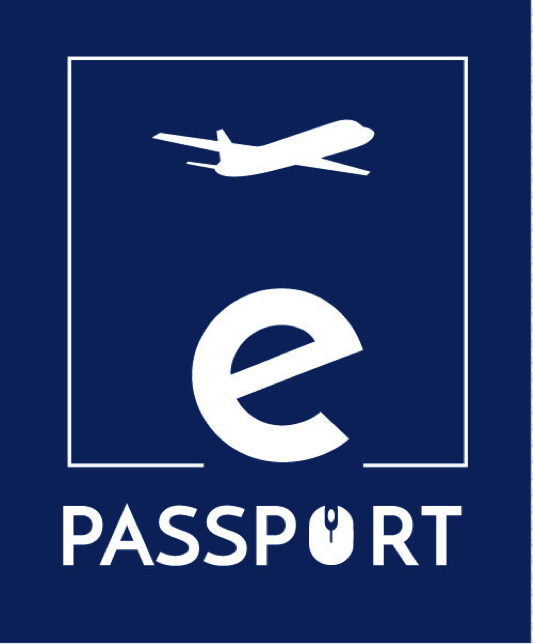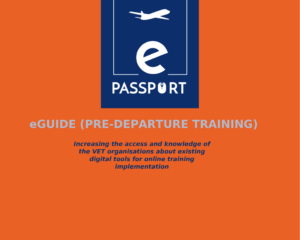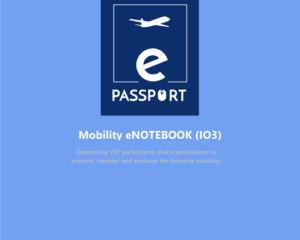Erasmus+ KA2 Project: ePassport
Our first tool is here to help future VET participants build their project during a distance preparation and follow-up.
The main objective of the ePassport project is to strengthen the capacities of organizations working in the field of Vocational Education and Training (VET) and to improve their techniques and methods of preparation and follow-up of their beneficiaries participating in a hybrid and virtual mobility project.
In order to meet these objectives, the ePassport consortium has developed this tool to help future VET participants to build their project during the preparation and the follow-up at distance (hybrid or
virtual).
virtual).
Indeed, you are about to concretize your European or international mobility project. Our role as a sending organization (SO) is to support you in the preparation of your departure, to accompany you
throughout the mobility project and until the end of your mission, and to carry out a mid-term and final evaluation of your project.
throughout the mobility project and until the end of your mission, and to carry out a mid-term and final evaluation of your project.
This is why ADICE, Forum Educativo, KANE & KERIC have prepared this tool which will be your “Mobility Passport” for all the stages of your project.
The ePassport sheets aim at developing & improving:
- Your knowledge about your country of intervention and its context
- Your mobility project (personal and professional)
- Your understanding of Europe and its functioning
- Your preparation for professional interviews (CV, cover letter, etc.)
- Your understanding of the functioning of the host organization
- Your self-assessment and skills monitoring skills (before, during and after the hybrid or virtual
mobility). - And so on.
You can download and fill in the ePASSPORT sheets by clicking on the image below:
Check also the other results of this project:
IO2: eGuide (Pre-departure training)
IO3: Mobility eNOTEBOOK
IO4: eFollow-up guide
MORE INFO ABOUT THE PROJECT HERE: https://ngokane.org/en/epassport/
Disclaimer: Funded by the European Union. Views and opinions expressed are however those of the author(s) only and do not necessarily reflect those of the European Union or the European Education and Culture Executive Agency (EACEA). Neither the European Union nor EACEA can be held responsible for them.







